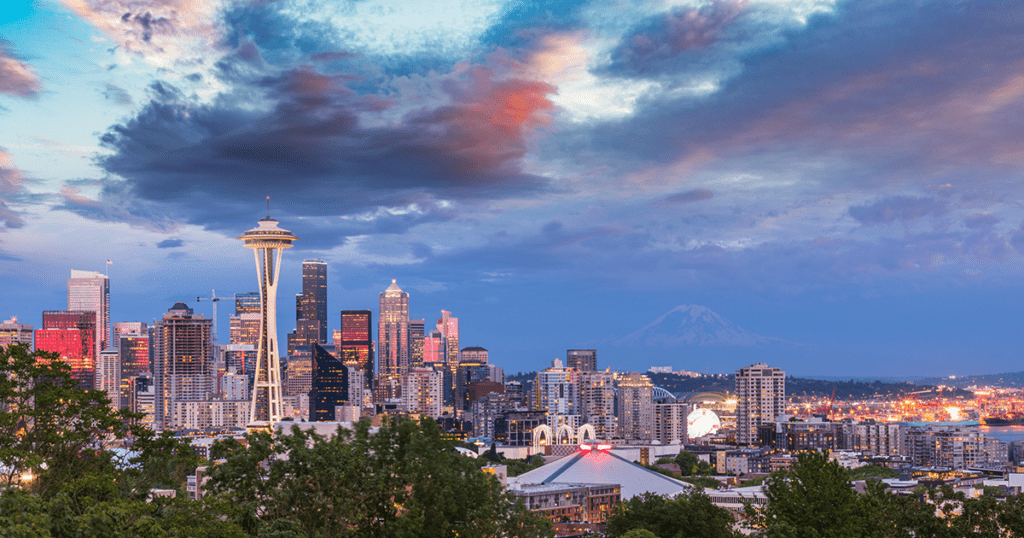Sign up below to receive the latest insights into the multifamily market from redIQ. We swear, we won't blow up your inbox.
Multifamily Markets: Seattle

Seattle is best known for a few things: coffee, rain, and houseboats. It is also one of the best cities in the country for access to parks, ranking 4th in the nation in 2017 for parks spending per resident, and 93% of the city lives within a ten minute walk from an outdoor space. Hopefully the city can maintain that record, as it is growing at a startling rate. From 2016 to 2017, Seattle was one of only five of the 15 largest metropolitan areas in the U.S. which experienced positive net migration, with 21,000 more people moving into the city than moving out. Thankfully, transportation is catching up. The city has nearly three times as many miles of bike trails than the next leading city in the Pacific Northwest, Portland, despite Seattle’s smaller footprint. Seattle has also spent extensively to grow its light rail network and to build motorways to accommodate new residents.
The city is rich in technology jobs, having experienced the fastest growth in software jobs in the nation since 2012, according to Glassdoor, a 6.7% increase, 5x the rate of growth of the second city on the list. It is home to the headquarters of two of the largest technology companies in the world, Microsoft and Amazon. Seattle’s strength in tech jobs is one of the reasons niche.com ranked Seattle the #4 Best City for Millennials in America. The metro area boasts the 10th fastest growing millennial population, according to a recent publication from the Brookings Institute. Thanks to its aforementioned excellent public transit system, Seattle has over 416,000 jobs accessible with a commute of less than 30 minutes.
The rapid rate of construction in Seattle has contributed to an added bonus for renters: lowering rental rates. The rental rate in Q4 2017 dropped an average of $50/month, the largest drop this decade. This comes on the heels of a 48% increase in rents over the previous five years. Seattle is about average for affordability, but incomes are now rising faster than rents, which will further improve the city’s affordability score. With the extended construction boom and increasing vacancies, it will be telling to watch how many new developments are proposed in the coming months.
